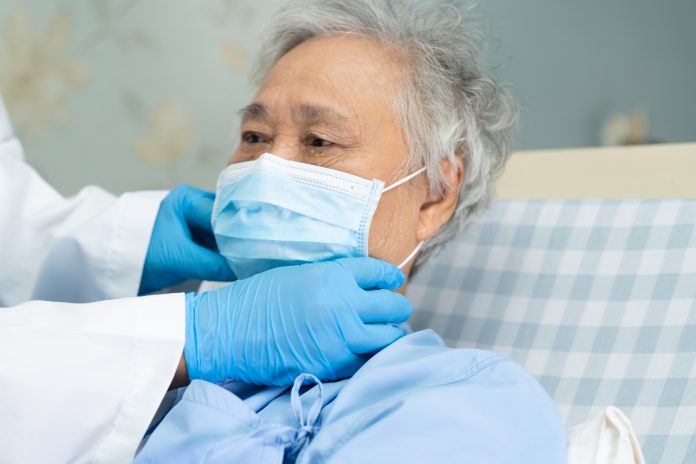While long COVID is slowly becoming more understood, ordinary COVID-19 patients are experiencing lasting effects – scientists discovered that 76% of people have atleast one recurring symptom, six months after the original illness
In the last seven days, the UK diagnosed 417,570 new cases of the virus. Despite the UK approving three vaccines for use, the sun-blocking shadow of increasing COVID hospitalisations and deaths is generating fear. According to data, one in fifty people have the virus – with a stark one in twenty with COVID in London.
NHS leaders are warning that the health infrastructure is already strained to maximum capacity. Chief Medical Officer Chris Whitty issued warnings about three weeks remaining before the NHS is fully overwhelmed – leading to avoidable deaths, due to a lack of capacity.
Unfortunately, scientists have recently discovered that COVID-19 patients who do not contract long COVID can continue to experience symptoms. The research by scientists at Jin Yin-tan Hospital in Wuhan, China has been peer reviewed, and used a cohort of 1,733 patients who were first diagnosed between January and May.
This is one of the first cohesive follow-up studies done on COVID-19 patients.
Organ failure can hit six months later
Researchers saw that those who experienced a fierce period of COVID were found to have impaired lung functions and abnormalities, detected six months after the onset of any symptoms. This could signal organ failure.
Smoking has recently been identified by King’s College London as a huge contributing factor to lung damage.
The authors also found that some patients went on to develop kidney problems post-discharge. As well as the lungs, COVID-19 is known to affect other organs, including the kidney. Lab tests revealed that 13% of patients whose kidney function was normal while in hospital had reduced kidney function in follow-up.
Antibodies are half-gone after 6 months
The antibodies created by the virus fell by over half once six months had passed, in almost all the patients (94%). This confirms that healthcare authorities should be focused on the possibilities of reinfection, which defeats the herd immunity theory touted early on in the UK.
A separate study in September, 2020, published in PLOS Pathogens, suggested the antibody response in patients who have recovered from coronavirus is not typically strong and declines around one month after patients are discharged from hospital.
A British Society for Immunology spokesperson, Professor Danny Altmann, said: “Once again, evidence shows that the half-life of these antibodies in the blood is not particularly sustained.
“We don’t know to what extent this is bad news unless we know the extent to which the white blood cells that make the antibody (B cells) are up and ready to defend against any repeat attack.”
Muscle weakness is persistent
The study looked at long-term impacts of COVID, including the symptoms that were likely to continue or recur down the line. It turns out that the most common experience is of fatigue or muscle weakness, with 63% of patients showing that they continue to suffer from this symptom. Two more recurring symptoms are sleep difficulties and anxiety or depression, reported at 26% and 23% of patients respectively.
‘We are only beginning to understand’
Professor Bin Cao, from National Center for Respiratory Medicine, China-Japan Friendship Hospital and Capital Medical University, said: “Because COVID-19 is such a new disease, we are only beginning to understand some of its long-term effects on patients’ health. Our analysis indicates that most patients continue to live with at least some of the effects of the virus after leaving hospital, and highlights a need for post-discharge care, particularly for those who experience severe infections.
“Our work also underscores the importance of conducting longer follow-up studies in larger populations in order to understand the full spectrum of effects that COVID-19 can have on people.”











